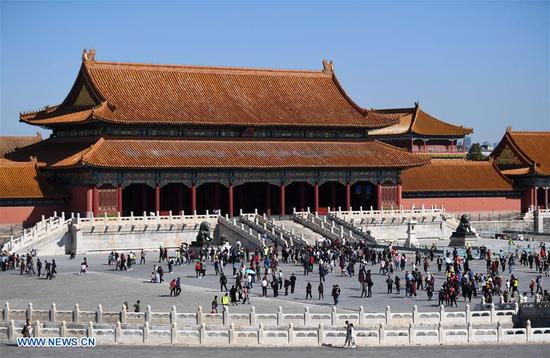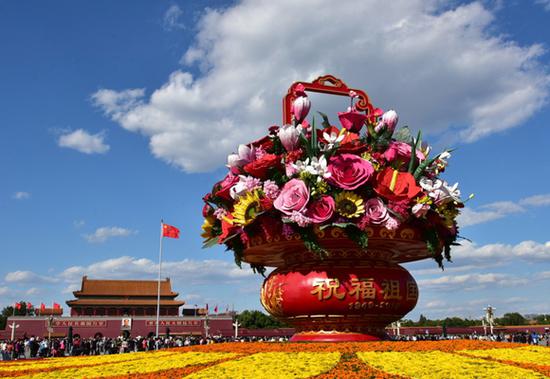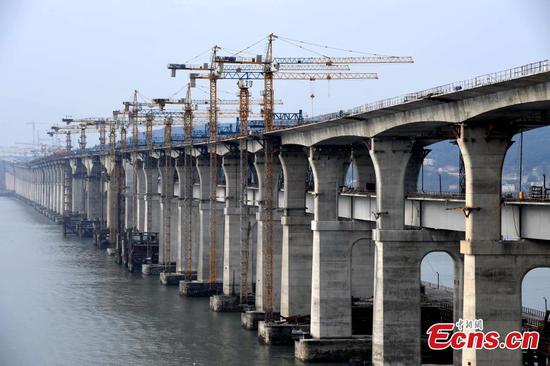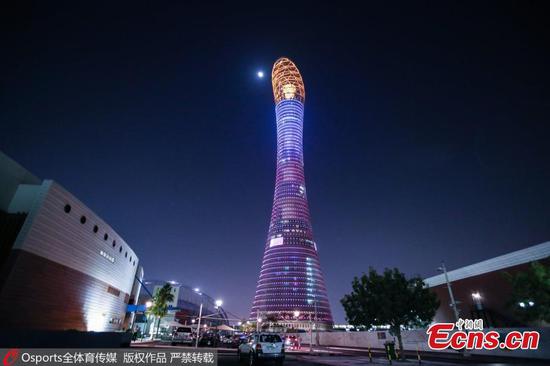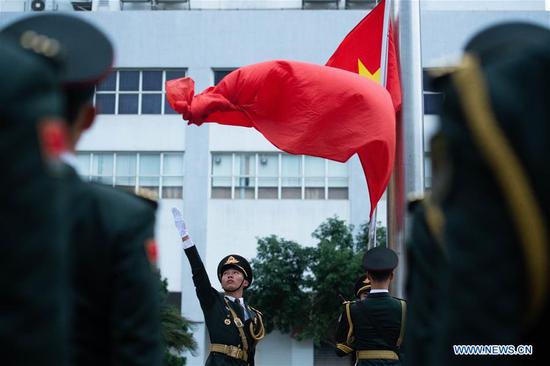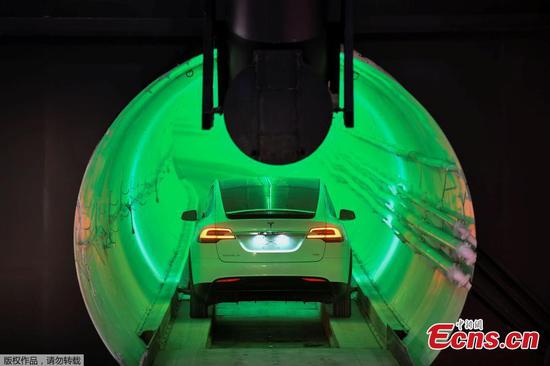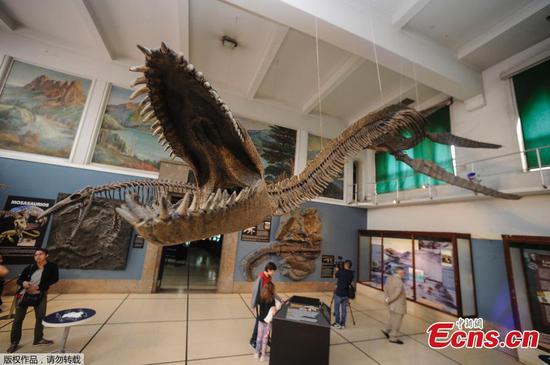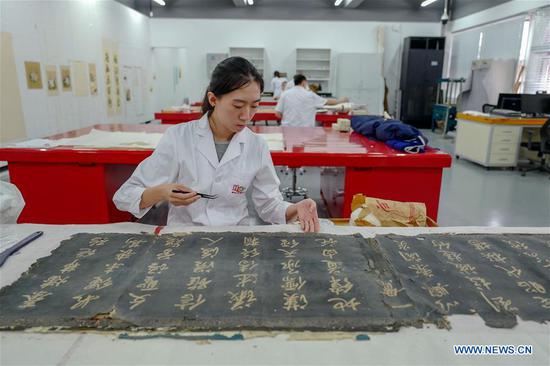Attractive market key to drawing foreign companies, capital
The protection of foreign-invested companies' intellectual property rights (IPR) should be reinforced, and administrative means cannot be used to enforce technology transfers, read the draft of China's new foreign investment law released on Sunday.
The legislation is expected to combine the country's three foreign investment laws into one to promote and protect foreign investment, providing legal guarantees for expanding the use of foreign capital in the new era, the Xinhua News Agency reported on Sunday.
During the weeklong session of the Standing Committee of the 13th National People's Congress, which began Sunday, the draft of the new foreign investment law was submitted for review.
The draft law confirms IPR protection for foreign inventors and foreign-funded companies. It also supports technological cooperation on a voluntary, commercial basis, saying that authorities cannot use administrative means to compel technology transfers.
Tang Wenhong, an official at the Ministry of Commerce, said at a national commerce conference held in Beijing on Saturday that the new law is expected to be rolled out as early as possible in 2019.
All laws, rules and normative documents that go against the current opening-up policy will be scrapped, he said.
China is widening market access for foreign investors while also improving the domestic business investment. It is inevitable that the country will remove foreign ownership limits and boost investment liberalization in more sectors, said experts.
The annual Central Economic Work Conference, held from Wednesday to Friday, stressed it is an important task for the next year to promote comprehensive opening-up. This process should feature a shift from openness focused on products and factors of production to one that is represented at the institutional level.
"Previously, China's opening-up was mainly involved with such issues as products, raw materials, capital and technology, which belong to the category of products and factors of production," said Bai Ming, a research fellow at the Chinese Academy of International Trade and Economic Cooperation.
"It is a big change for the meeting to shift attention to the institutional level, which requires China to quicken the pace in creating an international business environment marked by fair play and transparency," Bai said.
In June, the National Development and Reform Commission (NDRC), China's top economic planner, unveiled a new version of the negative list that sets out sectors where foreign investment is limited or prohibited. The number of items on the negative list was cut to 48 from 63 in the previous version, which was released in June 2017.
Attractive market
In terms of wholly foreign-owned businesses, Bai said "their entry will exert some pressure on domestic companies, but we should look more at the cooperation and potential opportunities."
A further reduction of the negative list and removal of ownership limits will benefit foreign investors, especially companies that are wholly foreign-owned, said Tang.
Several opening-up moves have taken place this year, mainly in the vehicle and financial sectors.
U.S. technology giant Tesla Inc announced plans to set up its plant in Shanghai to produce electric vehicle, which will be the first car plant in China to operate without a local partner.
In November, Switzerland-based bank UBS received the approval from Chinese authority to increase its shareholding in its securities joint venture in China - UBS Securities Co - from the current 24.99 percent to 51 percent, becoming the first foreign securities firm to take majority stake in a JV in China.
Yang Changyong, a senior research fellow of the Institute of International Economic Research under the NDRC, told the Global Times on Sunday that in 2019, the main target for further opening-up will center on the services sector including education, telecommunications, culture and medical care.
The manufacturing sector has been basically opened, Yang said.
"It is equally important to have foreign investors stay after entry restriction is eased, which requires further efforts to improve the business environment based on rules and equality," Yang said.
The major basis for China's attraction to foreign capital, despite trade friction with the U.S., comes from the huge size of the Chinese market, Yang noted. However, the market needs cultivation to become more normalized and efficient in terms of the supply side.










